1.31.2007
Blast first, talk later
Yesterday, in her regularly scheduled press conference, China's Foreign Ministry spokeswoman Jiang Yu said "China is willing to make efforts with other countries to formulate a binding outer space treaty so as to effectively prevent the weaponization of the outer space. We hope relevant parties can work with us in this regard."
When asked, she also confirmed a Chinese delegation will attend the Committee on the Peaceful Uses of Outer Space (COPUOS) meeting of the Scientific and Technical Subcommittee, February 12-23, 2007 in Vienna. And here is the provisional agenda for that meeting. (And this is it in Chinese.) No agenda item specifically on ASAT's for the Subcommittee, but #7 covers space debris, a major area of concern in a world where a nation may go ahead and blast apart up one of its old satellites in orbit. "The text of the draft space debris mitigation guidelines of the Subcommittee, developed by consensus in the Working Group on Space Debris at the forty-third session of the Subcommittee, and contained in document A/AC.105/C.1/L.284, is to be presented to the Subcommittee at its forty-fourth session, for its approval."
(The US, also a member of COPUOS and will no doubt attend the Subcommittee session, has not blown up any satellites lately and remains on the record as having no interest in negotiating a space arms treaty.)
1.30.2007
40 Year Old Magna Carta of Space Law
 January marks a few events in space history that are not so wonderful.
January marks a few events in space history that are not so wonderful.But this month here in the space-watching world we are also commemorating something that was no accident.
In January, 1967 the Outer Space Treaty or, more formally, the Treaty on Principles Governing the Activities of States in the Exploration and Use of Outer Space, including the Moon and Other Celestial Bodies (18 U.S.T. 2410, T.I.A.S. No. 6347, 610 U.N.T.S. 205) -- the document widely regarded as the Magna Carta of space law -- was opened for signature.
On January 27, 1967, in Washington, London, Moscow, the U.S. signed the Outer Space Treaty.
(For the record, the U.S. Senate ratified it April 25, 1967. President Johnson ratified it May 24, 1967. And on October 10, 1967, the U.S. ratification was deposited at Washington, London, and Moscow; that's the day, for better or worse, the Outer Space Treaty entered into force.)
(1967 was also the year of Super Bowl I; a new Chevrolet cost less than $2,500; Robert Oppenheimer died; the Beatles' Sergeant Pepper's Lonely Hearts Club Band was on the turntable; and lots more stuff was happening. You know. The sixties.)
It's not easy being an international treaty, and the OST certainly has its share of critics. You can spot the Treaty's flaws, shortcomings and unanswered questions from orbit. Legal scholars and others have lined up for decades to propose amending, redrafting, withdrawing from or abandoning the oft-times beleaguered Treaty.
But for now, as Prof. Reynolds points out, "Among all of the treaties relating to activity in outer space, the Outer Space Treaty of 1967 enjoys the broadest subscription and the highest regard. Although some of the regard for the Treaty may stem as much from sentiment as from any concrete benefit it provides--the Outer Space Treaty having been a triumph of consensus and forward-looking thought at a time when cold war tensions and narrow nationalism were the norm--the Outer Space treaty does accomplish a great deal."
The UN Office for Outer Space Affairs reports that (as of 1/1/06) 98 States have ratified and an additional 27 have signed the Outer Space Treaty; and summarizes the principles set forth in the treaty that "provides the basic framework on international space law" as follows:
States shall avoid harmful contamination of space and celestial bodies.
Unfortunately, Paul Dembling & Daniel M. Arons' excellent article, The Evolution of the Outer Space Treaty, 33 J. AIR L. & COMM. 419. 436 (1967) is not on the Web (it is excerpted in Prof. Reynolds' book).
Just a bit of background: Before the adoption of the 1967 Outer Space Treaty, we had UN resolutions and declarations, scholarly articles, speeches by government officials, other international treaties, etc. which served to help lay groundwork for the principles ultimately embodied in the OST.
In 1966, in meetings in New York and Geneva, the fifth session of the then 28-member Legal Subcommittee of the United Nations Committee on the Peaceful Uses of Outer Space, negotiated and reached agreement on most of the Treaty.
Speaking of the hardworking Legal Subcommittee, in 2007 the forty-sixth session of that body (now with 67 members) takes place March 26 - April 5, at the United Nation Office in Vienna, Austria. (Later I'll have more on this year's Legal Subcommittee agenda and other items.) Meanwhile, yes there's an archive of reports of the Legal Subcommittee, dating back to 1990 only -- in English, French, Arabic, Chinese, Russian and Spanish; or, if you prefer, and I often do not, the Subcommittee's unedited transcripts. (In fact, not to confuse matters but COPUOS itself will hold its 50th session this year, June 6-15, also in Vienna.)
To date, no lawyers have flown to space.
By the way, don't forget the University of Nebraska College of Law has scheduled a space law conference on March 2, 2007 to commemorate the Treaty's big four-oh.
And since this is 2007 it's also the 50th anniversary of the dawn of the Space Age, an epoch ushered in by the launch of the first artificial satellite, Sputnik 1 on October 4, 1957 (at 19:12 UTC, to be precise). And there will be lots of celebration about that.
* * *
IMAGE: Not exactly sure. It's either the Magna Carta issued by King John’s chancery in 1215, or a version of the OST in... Klingon?
1.29.2007
More than Air at ABA
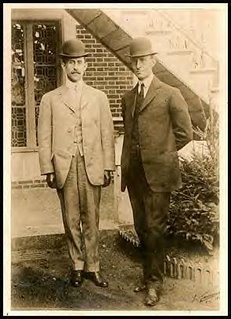 As I've noted, the ABA's so-called Forum on Air & Space Law has always exhibited shall we say a slant toward (yes, some might call it a fetish for,) air law. Sure, for lawyers with their heads in the clouds, there was no higher ground to cover in the 20th century than airplanes, airports, aviation business and all that. But the 20th century's over. Going forward, we should expect the Forum on Air & Space Law to get seriously in touch with its space side.
As I've noted, the ABA's so-called Forum on Air & Space Law has always exhibited shall we say a slant toward (yes, some might call it a fetish for,) air law. Sure, for lawyers with their heads in the clouds, there was no higher ground to cover in the 20th century than airplanes, airports, aviation business and all that. But the 20th century's over. Going forward, we should expect the Forum on Air & Space Law to get seriously in touch with its space side.For 2007, the forum has scheduled two one-day "update conferences," and the first is happening this Thursday, February 1, 2007 at the Washington, DC, Mayflower Hotel. The topic: Winds of Change: Cleared for Takeoff? (You see what I'm talking about. And they have yet to run out of aviation metaphors.)
But yes, putting the space in the otherwise aviation-focused Forum meetup will be at least this panel: "The Law and Policy of Public and Private Space Ventures," which the event's brochure describes thusly: "Commercial interest in space, whether for satellites, passenger transport, or exploration, has increased exponentially in recent years. And the Administration's Vision for Space Exploration seeks to encourage and leverage that interest. However, navigating the difficult funding, intellectual property, jurisdictional, and national defense issues associated with commercial interests in space can be quite tricky. This panel of experts will identify the legal and policy issues at stake, and provide invaluable insight into the future of space ventures."
Indeed, moderating this sole but notworthy space segment will be space law veteran Franceska O. Schroeder of Fish & Richardson P.C., with speakers Patricia Grace Smith, chief of FAA/AST, and Michael Wholley, general counsel of NASA. Now we're talking.
And, oh yes, delivering the opening keynote will be none other than Rep. James L. Oberstar (D-MN), chairman of the House Transportation Committee who is no stranger to federal space law (and has in prior sessions of Congress proposed some related legislation of his own). I'll post the congressman's comments here if available.
Another Forum on Air & Space Law update conference will take place October 3, 2007 in Memphis, Tennessee at the Peabody Hotel. (Expect much of the same lopsided air law to space law ratio. But perhaps by then somebody will have reminded the forum that 2007 is the 50th anniversary of the space age?)
* * *
Image: The Wright brothers (pictured here without their lawyers).
1.26.2007
Friday Flybys - 1.26.07
 Is this a good week to attempt to upgrade SLP from old Blogger to new Blogger? I hope so (yikes...), meanwhile, a few goodies... (and with some luck, I won't blow up the blog before Monday).
Is this a good week to attempt to upgrade SLP from old Blogger to new Blogger? I hope so (yikes...), meanwhile, a few goodies... (and with some luck, I won't blow up the blog before Monday).And the winners are . . . Dreamgirls! -- no, wait. Wrong list. Um - oh yes:
- Supreme Court of Singapore
- Superior Court of California, Los Angeles County
- Federal Court of Australia
- Nebraska Workers' Compensation Court
- Iowa Judicial Branch
- U.S. District Court, District of Nevada
- Connecticut Judicial Branch Law Libraries
- Superior Court of California, County of Napa
- District of Columbia Courts
- Brevard County Clerk of the Court, Florida
And for SLP glory, which of these 10 world-beating, award winning courts served as the venue for a famous space law case concerning a claim of property rights to asteroid 433, Eros? Hint Judge Howard McKibben dismissed the case for failure to state a claim. The 9th Circuit Court of Appeals affirmed. (Another hint.) That's right. And congratulations to all these winners.
Stay warm. Have a fearless weekend.
1.25.2007
Meanwhile, over in Japan
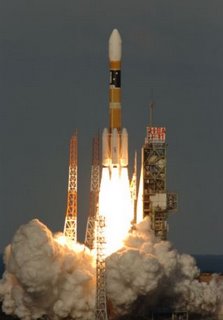 While China grabbed the world's attention with its ASAT weapon display this month, over in neighboring Japan lawmakers are contemplating their own nation's future in space. An editorial in The Daily Yomiuri, (Jan. 21, 2007) which notes Japan's space development program "is barely holding together and lacks any real substance," calls on Japan's Liberal Democratic Party (LDP) to act on establishing a bill of "Basic Space Law" that would "get Japan in space race."
While China grabbed the world's attention with its ASAT weapon display this month, over in neighboring Japan lawmakers are contemplating their own nation's future in space. An editorial in The Daily Yomiuri, (Jan. 21, 2007) which notes Japan's space development program "is barely holding together and lacks any real substance," calls on Japan's Liberal Democratic Party (LDP) to act on establishing a bill of "Basic Space Law" that would "get Japan in space race."I have not seen a draft, but Keiji Tachikawa, President of the Japan Aerospace Exploration Agency (JAXA) (宇宙航空研究開発機構) said in his 2007 new year interview, "House members finally formulated basic space legislation last year, creating the climate for the development of the nation's space policy. The space bill will reportedly be submitted soon to the Diet, and I hope that this will clarify space policy at the governmental level, which will also facilitate the operation of JAXA as an executive agency. I do hope the bill will pass."
According to the editorial, the LDP proposal includes a new governmental "Space Strategy Headquarters" to "promote comprehensive space-related policies." The party's proposal is based on "three main pillars":
--Reinforcing the nation's security through the development and utilization of space.Pointing out that Japan is "trailing internationally," and "still struggling in its development of its space program," and citing difficulties with nation's H2-A booster in the satellite launching business among other concerns, the paper concludes:
--Promoting space-related research and development.
--Promoting the development of the space industry.
Only a handful of launch projects attract global attention. With very few practical-use satellites being ordered and government research and development projects being the only source of such income for corporations, it may be difficult to even maintain the current technology. Countries such as China and India have gotten serious about their development programs and use of space. If we sit on our hands, we may find Japan has become an undeveloped country in the realm of space.What's been holding back Japan? In 1969, just after the U.S. landed Neil Armstrong on the moon, the 61st session of the National Diet (Japan's parliament) established the National Space Development Agency of Japan, creating a national space agency -- NASDA, predecessor of Japan Aerospace Exploration Agency (JAXA) -- and barring Japan from participation in space activities other than "exclusively for peaceful purposes." Presumably, new legislation would amend or supersede the 1969 resolution.
The editorial does specify the LDP would include in its proposed bill the phrase, "in keeping with clauses stipulated in the Outer Space Treaty."
As JAXA chief has said, "we must always remember that JAXA is an exploration agency. Research and development are our primary function."
(By way of background, on October 1, 2003, the "Institute of Space and Astronautical Science [ISAS], which was devoted to space and planetary research; the National Aerospace Laboratory of Japan [NAL], which focused on research and development of next-generation aviation; and the National Space Development Agency of Japan [NASDA], which was responsible for development of large-size launch vehicles, as represented by H-IIA, satellites, and the International Space Station" were merged into "one independent administrative institution" -- the Japan Aerospace Exploration Agency [JAXA].)
We've heard much in the past few years from those who favor revamping and upgrading Japan's approach to space business and security. Folks who think Japan should at least keep up with space-faring neighbors including China and India say change is overdue. A Space News editorial called the peaceful purposes resolution "outdated from the beginning" in that, for one thing, it was more restrictive than the Outer Space Treaty. In any case, as far as new space technology as well as national security threats, "a lot has changed" since 1969.
New law and authority (presumably including a budget to fund a more competitive national space program?) would help Japan move forward. John M. Logsdon, director of the Space Policy Institute at George Washington University's Elliott School of International Affairs, who has studied Japan's space program commented, "... I know that there is a debate in Japan now about broadening the definition of peaceful to include non-aggressive applications of space for national security. In my view, that makes sense, it is a mature approach to what space capabilities can add to the society."
Meanwhile, here is JAXA 2025, Japan's long-term vision for space announced in April 2005, which includes manned flights to the moon by 2025.
(And this is a 43-page 2005 RAND report on Japan's space program.)
At least one thing would result from new Japanese space business: more work for Japanese space lawyers.
* * *
Image: H-2A liftoff; courtesy, JAXA
* * *
UPDATE: Of course, space is not the only area in which Japan is rethinking its policies. More taboo-breaking -- the pacifist nation has apparently retired its post-WWII stance as Prime Minister Shinzo Abe this month upgraded the nation's Defense Agency to full cabinet status giving the military a new profile beyond "self-defense."
1.23.2007
Who wants an anti-ASAT treaty?
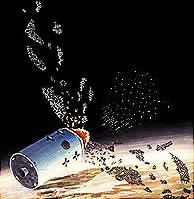 In addition to the orbital mess caused by China's anti-satellite weapon test, a noxious cloud of diplomatic debris lingers. The U.S. and other nations (Canada, Australia, India, Japan, others) quickly stepped in to criticize, protest, complain about, puzzle over and demand an explanation for China's Jan 11th earth-shaking ASAT weapon test. But nobody has called the test illegal.
In addition to the orbital mess caused by China's anti-satellite weapon test, a noxious cloud of diplomatic debris lingers. The U.S. and other nations (Canada, Australia, India, Japan, others) quickly stepped in to criticize, protest, complain about, puzzle over and demand an explanation for China's Jan 11th earth-shaking ASAT weapon test. But nobody has called the test illegal.Gordon Johndroe, U.S. National Security Council spokesman cited no international or space law violation by China when he stated: "The U.S. believes China's development and testing of such weapons is inconsistent with the spirit of cooperation that both countries aspire to in the civil space area."
In Britain, Prime Minister Tony Blair's spokesman told reporters, "We have concerns about the impact of debris in space and we've expressed that concern," and he specified, "Britain did not believe the test contravened international law, but was concerned by the lack of consultation." He also said the test was "inconsistent with the spirit of China's statement to the UN and other bodies on the military use of space."
In the end, China is free to target one of its old weather satellites with an ASAT weapon and blow the spacecraft apart because 1) it can; and 2) ASAT testing is not forbidden under international law. The arms control provisions of the Outer Space Treaty forbid the placing of nuclear weapons "or any other kinds of weapons of mass destruction" in orbit. The treaty also forbids "establishment of military bases, installations and fortifications, the testing of any type of weapons and the conduct of military maneuvers on the Moon and other celestial bodies. (Art. IV)
Objectors could perhaps argue China's debris-spewing test ran afoul of the "harmful contamination" clauses of OST Article IX. China's lack of "consultation" on its planned test seemed to have particularly vexed many Nations. Of course, under the OST and the Liability Convention nations are liable for damage caused by their space activities. (The ever-engaging and knowledgable Taylor Dinerman, who has an interesting article this week on a class of co-orbital ASAT weapons that would destroy targeted spacecraft without producing debris, comments, "Filling low Earth orbit [LEO] with debris after a successful strike on an enemy satellite is perfectly OK under the terms of the Outer Space Treaty, but no one should expect that it is OK with all the space lawyers out there." He's probably right, space debris is not OK with all the space lawyers; and that's why -- although it is not the only reason -- space lawyers typically make bad warfighters. ;)
Other proposed international instruments may have disallowed China's satellite-smashing activity. As to ongoing discussions about the Prevention of an Arms Race in Outer Space (PAROS), things are pretty much at a stalemate. The U.S. consistently opposes the negotiation of a PAROS treaty. In its most recent statement to the UN Conference on Disarmament the U.S. delegation set forth its position that "there is no - repeat, no- problem in outer space for arms control to solve." And the delegation remains "more convinced than ever that issues relating to the supposed weaponization of space definitely do NOT command consensus in this body".
For its part, China supports PAROS. (As to the problem of verification -- which everyone seems to agree is a problem -- China suggest "to negotiate a treaty without verification provisions could be a practical alternative." Russia concurs. Here is a white paper by China and Russia on verification of PAROS (May 22, 2006).
As to a Space Preservation Treaty that would, inter alia, prohibit the use of weapons to destroy or damage satellites, supporters are speaking out in light of the China's move. Yesterday an editorial in the Hindustan Times called for a "action on a Space Preservation Treaty that will connect to the ideals of the Outer Space Treaty of 1967 that banned the placement of nuclear weapons or WMDs in the orbit of Earth, or on any celestial body or station. Such a treaty would ban all space weapons." On the proposed related legislation, the U.S. has not taken up the Space Preservation Act -- despite the efforts of Congressman Dennis Kucinich (D-OH), and others.
If China does not want an arms race, and wants ASAT tests to be illegal, why did it choose to begin the new year by blowing up a satellite? Space analyst James Oberg writes, "The most obvious reason for China's test at this time would be to push the United States, and particularly the new Democrat-controlled Congress, into signing a formal treaty banning the use of anti-satellite weapons." In his interesting article, James looks at problems inherent in negotiating, interpreting and relying on any agreement to ban anti-satellite weapons, including verification and enforcement.
In any case, the US, as yet, has not changed its stance on any ASAT ban. Under the National Space Policy released in October 2006, in which "Freedom of action in space is as important to the United States as air power and sea power," the U.S. "will oppose the development of new legal regimes or other restrictions that seek to prohibit or limit U.S. access to or use of space. Proposed arms control agreements or restrictions must not impair the rights of the United States to conduct research, development, testing, and operations or other activities in space for U.S. national interests."
And in the wake of the Chinese ASAT fallout, Space News (via Space.com) quotes a State Department official in a Jan. 19 telephone interview: "We do not think there is an arms race in space. The United States believes that the existing body of existing international agreements including the Outer Space Treaty, as well as the liability and respective compensation conventions provide the appropriate legal regime for space." No surprise. According to the article, "the official said the space policy clearly states that the United States will oppose the development of new legal regimes or other restrictions that seek to prohibit or limit U.S. access to, or use of, space and that no change in that policy is warranted." And Space News further quotes the spokesperson as saying, "Arms control is not a viable solution for space. For example, there is no agreement on how to define space weapon. Without a definition you are left with loopholes and meaningless limitations that endanger national security. No arms control is better than bad arms control."
U.S. Air Force Associate general counsel Philip Meek told Reuters the US "was reluctant to sign any rules or agreements because it had an 'asymmetric advantage' in space and had more to lose than other nations." (Space is not a line item in the DOD budget, but apparently the DOD annual space budget --- classified and unclassified -- is in the neighborhood of $20 billion. Well, so far.)
But also via Reuters, one US military space insider, Col. Patrick Rayermann, chief of the U.S. Army's Space and Missile Defense Division, acknowledged, "the Chinese test had re-energized discussions about the need for a treaty or certain rules for actions taken by space-faring countries" but adding "verifying compliance could prove difficult." (Via SciAm)
Meanwhile, over in China, a Foreign Ministry spokesman Liu Jianchao has responded to the international outcry, saying China "has always supported the peaceful use of space . . . China has never participated and will never participate in any arms race in outer space. This test was not directed at any country and does not pose a threat to any country."
Much more on all this to come.
1.19.2007
Friday Flybys - 1.19.07
 Apart from China's sudden urge to blast apart its Feng Yun or "wind and cloud" spacecraft resulting in a waste of a perfectly good weather satellite and triggering worries about a space arms race, the cloud of orbital debris caused by the intentional explosion raises serious concern. One good reference, as I've posted, is The Ballistic Missile Defense System and its Effects on the Outer Space Environment, in which Steve Mirmina, senior attorney in NASA's Office of the General Council (JSL, 2005; writing in his personal capacity) looks at some interesting international space and enviornmental law issues at play. And yes, China is a party to the Liability Convention. (Of course, triggering the treaty may be the easy part. Proving ownership of any damaging debris could be a bit trickier.)
Apart from China's sudden urge to blast apart its Feng Yun or "wind and cloud" spacecraft resulting in a waste of a perfectly good weather satellite and triggering worries about a space arms race, the cloud of orbital debris caused by the intentional explosion raises serious concern. One good reference, as I've posted, is The Ballistic Missile Defense System and its Effects on the Outer Space Environment, in which Steve Mirmina, senior attorney in NASA's Office of the General Council (JSL, 2005; writing in his personal capacity) looks at some interesting international space and enviornmental law issues at play. And yes, China is a party to the Liability Convention. (Of course, triggering the treaty may be the easy part. Proving ownership of any damaging debris could be a bit trickier.)On a more peaceful note, for those who missed both the live roundtable and Webcast yesterday on space law and globalization, the National Center for Remote Sensing, Air and Space Law (NCRSASL) will be putting online a Webcast recording and also offering a DVD of the event. I'll post an update when all that becomes available.
Meanwhile, speaking of events at NCRSASL, the Center, along with the University of Mississippi Alumni Association, will be hosting a Journal of Space Law reunion in Oxford, Mississippi on Apr. 13, 2007, featuring keynote speaker Justice Kay B. Cobb of the Mississippi Supreme Court who served as editor-in-chief of the Journal in 1977. A lovely gathering.
Reminder: Feb 15 is the deadline for commenting on the Draft UNIDROIT Space Assets Protocol. Get your comments to Prof. Mark Sundahl.
Also for public comment: Robin Snelson posts the draft rules for the 2007 Northrop Grumman Lunar Lander Challenge at the upcoming X Prize Cup in October. Keep the lawyers busy.
More static about that possible satellite radio merger -- FCC says Sirius and XM licenses can't be combined. (But can they be modified?)
At the three year anniversary of President Bush's announcement of the Vision for Space Exploration, Jeff Foust looks ahead at near-term challenges for the program. (The Space Review)
Also in The Space Review, Taylor Dinerman uses some words you don't hear in polite space society --"colonization", "conquest", "exploitation", "settlement", "industrialization" and more -- and calls for revisions to the Outer Space Treaty to "enshrine property rights and a broadly 'American' view of human freedom" for human settlements beyond Earth. (Such potty mouth! ;)
Ryan Zelnio looks at some studies on the economic impact of spaceports.
Yes, it's LegalTech time again, "the most important legal technology event of the year," Jan. 29-31, 2007 in NYC. Hi to my old pals from American Lawyer Media. (Space lawdroids welcome, I assume.)
Dick Stafford subscribes to the new zine, LAUNCH and reports founding editor Mark Mayfield has lined up veteran space writer James Oberg as a contributor. Super. As Dick tells it, LAUNCH "interviews will include actors, politicians, scientists, TV anchors, and even astronauts." What, no space lawyers?
To heck with law school. The Rocket Dungeon master suggests some rocket classes.
Congratulations to Starchaser on winning a $200,000 study contract from the European Space Agency.
The team is reportedly quite happy with the smooth progress so far as SpaceX moves carefully closer to Falcon 1 liftoff. Meanwhile, Elon says "don't hold your breath for this launch." No worries, Elon. We'll breathe later. ;)
Finally, this blog is not Space Bunny Probe, but honorable mention goes to three civic-minded Playboy Playmates (circa '67, '69) whose impressive images made it all the way to the moon and back, are now are enshrined (if you can find 'em, and many have) on this G-rated government Web site devoted to Apollo 12. Yes, your space tax dollars at play ;).
Have a breathless weekend.
* * *
Image: No, no Playboy space bunnies. This is fully clothed "Marvin" the "virtual astronaut" - courtesy of Starchaser Industries.
1.18.2007
Webcast - space law & globalization summit
 The next best thing to being at the University of Mississippi today for the National Center for Remote Sensing, Air and Space Law's day-long roundtable on Space Law in The Era of Globalization (and my earlier post has a list of participating legal luminaries and more background) -- as promised by the roundtable's host, world-traveling space law guru Professor Joanne Gabrynowicz, who has gathered friends from "dozens of space law organizations" around the planet for the event, here is the Webcast of today's space law summit:
The next best thing to being at the University of Mississippi today for the National Center for Remote Sensing, Air and Space Law's day-long roundtable on Space Law in The Era of Globalization (and my earlier post has a list of participating legal luminaries and more background) -- as promised by the roundtable's host, world-traveling space law guru Professor Joanne Gabrynowicz, who has gathered friends from "dozens of space law organizations" around the planet for the event, here is the Webcast of today's space law summit:Access the Virtual conference (webcast) -- beginning at 10:00am CMT (that's 11:00am in NYC).
Click the "Cancel" button to bypass username / password.
(Viewable with Quicktime Player, which you can download for free.)
Those at home or at the office, help yourself to coffee and snacks. Enjoy!
(And please pass the skim milk?)
* * *
Regards from Space Law Probe to all participants!
1.17.2007
Spaceport love from Virginia lawmakers
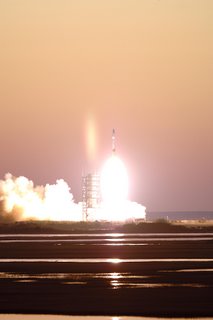 Speaking of spaceports... (and where on the map isn't this a hot topic?) take a look at the flurry of lawmaker activity in the Commonwealth of Virginia. The first-ever launch last month from the Mid-Atlantic Regional Spaceport grabbed the attention of the state legislature, big time.
Speaking of spaceports... (and where on the map isn't this a hot topic?) take a look at the flurry of lawmaker activity in the Commonwealth of Virginia. The first-ever launch last month from the Mid-Atlantic Regional Spaceport grabbed the attention of the state legislature, big time.As The Virginian-Pilot reports, "Democrat and Republican lawmakers from every corner of Virginia filed legislation in the General Assembly this week pushing for studies on ways to expand the spaceport."
Lawyer Jack Kennedy of Spaceports blog explains, "Fifteen of Virginia's 140 state legislators are now advancing four slightly differing versions of a study resolution 'to make the Mid-Atlantic Regional Spaceport the premiere commercial hub for space travel in the United States.' The four legislative measures are now pending in the Rules Committees of the Virginia House and Senate...."
Jack notes that the Mid-Atlantic Regional Spaceport is working on a $500,000 study of the facility's "suitability for orbital rocket launches by COTS firms like SpaceX, Rocketplane-Kistler, and others in COTS-2."
Here's more on those resolutions. And I've noted, Jack covers the action from the space-loving Commonwealth of Virginia on his second blog (with the long name), Mid- Atlantic Regional Spaceport (MARS) at Wallops Island, Virginia (and hopefully, 4th planet-watchers are not unduly confused if we call the Wallops Island spaceport "MARS" for short).
It's all good for Virginia. Homeboy Thomas Jefferson would be proud. (Speaking of Virginia insiders, just by way of example, Space Adventures is headquartered in Arlington, and its CEO Eric Anderson graduated from the University of Virginia; and I've read Anousheh Ansari graduated from George Mason University in Fairfax.)
Here, from spaceport wranglers at FAA/AST, is a map of federal, non-federal and proposed non-federal spaceports. So far. (Meanwhile, here in my home state, we're jealous.)
* * *
Image: Minotaur 1 launches TacSat-2 satellite from the Mid-Atlantic Regional Spaceport, Wallops Island, Dec. 16, 2006. (NASA photo)
1.15.2007
Translating Swedish space law
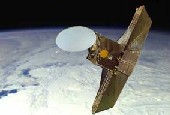 Space Law Probe loves to make friends around the planet. In response to a post on Friday in which I included a request for help translating a document, relating to the Swedish National Space Board (Rymdstyrelsen), Niklas Persson, a reader from Sweden (via the encyclopedic HobbySpace), quickly stepped in over the weekend and sent a "rough translation".
Space Law Probe loves to make friends around the planet. In response to a post on Friday in which I included a request for help translating a document, relating to the Swedish National Space Board (Rymdstyrelsen), Niklas Persson, a reader from Sweden (via the encyclopedic HobbySpace), quickly stepped in over the weekend and sent a "rough translation".Niklas, who says he cannot guarantee he has "all the formal language right" concludes, "I hope this gave you an understanding of what the law is about."
Tack så mycket, my friend!
And now, happily, I owe Niklas lunch in NYC (including a good shot -- or two -- of one of my favorite drinks, Absolut).
Here's the mystery document, in English:
~~~~~~~~~~~~~~~~~~~~~~~~~~~~~~~~~~~
Ordinance (1996:80) with instruction for Rymdstyrelsen (Swedish National Space Board)
Tasks
§ 1 Rymdstyrelsen is a central administrative authority for questions regarding Swedish space and remote sensing, especially regarding research and development.
§ 2 Rymdstyrelsen shall especially
1. Take initiative of research, development and other activities with connection to the Swedish space and remote sensing activities,
2. Coordinate various interested parties activities in the space and remote sensing area
3. Distribute government grants for space research, space technology development and remote sensing activity
4. Work internationally by
a. Preparing matters regarding international space and remote sensing cooperation
b. Be a contact organization for cooperation with international organizations and foreign institutions in the space and remote sensing area and
c. Enter, for the activities, necessary agreements with corresponding foreign agencys and international organizations on condition that the agreements do not require the participation of the Swedish parliament or the advisory council of foreign affairs
5. Prepare matters regarding permission of space activity and exercise control of such activity
6. Register space objects that are specified by ordinance (1982:1069)
regarding space activity
7. Promote appropriate information and documentation activities in the space and remote sensing area.
Ordinance application
§ 3 Ordinance (1995:1322) shall apply Rymdstyrelsen with exception of §§ 19,
20, 30 and 35.
Leadership of the authority
§ 4 The director-general is director of the authority.
Board of directors
§ 5 The board of Rymdstyrelsen consists of at most seven people, the
director-general included. The director-general is president of the board.
Responsibility and tasks of the board
§ 6 Beyond what is stated in §§ 11-13 ordinance (1995:1322) the board shall decide matters regarding:
1. Support to research and development,
2. [firing people under a lot of different circumstances]
Appeals
§ 7 Other decisions by Rymdstyrelsen, than decisions that according to § 22a administration law (1986:223) shall be appealed at common administration court, can be appealed at the Cabinet, [some exceptions].
Rymdstyrelsen decisions regarding support to research and development can not be appealed.
Transition rules
[old rules apply to appeals of old decisions]
* * *
Image: Odin satellite, developed by the Swedish Space Corporation, on behalf of the Swedish National Space Board.
1.12.2007
To Space from Sweden
 European and other space explorers, get ready for a suborbital trip on Virgin Galactic's SpaceShipTwo, lifting off from the aurora-lit northernmost city in Sweden.
European and other space explorers, get ready for a suborbital trip on Virgin Galactic's SpaceShipTwo, lifting off from the aurora-lit northernmost city in Sweden.To commemorate the official announcement of Spaceport Sweden (happening on January 26, 2007) -- Virgin Galactic's first European spaceport, to be located in Kiruna, home of such cool things as Sweden's space base Esrange, as well as the world's original ice hotel -- Space Law Probe takes a look at some Swedish space law.
For starters, the Swedish National Space Board (SNSB), under the Ministry of Industry, Employment and Communications, is the government agency responsible for national and international space activities in Sweden. SNSB distributes government funds for space research and activities, and coordinates Sweden's participation in European Space Agency (ESA) programs. (See overview here.)
And SNSB is responsible for "authorisation and supervision of space activities in accordance with space law."
(As for "the technical implementation of the national programme," SNSB contracts this to the government-owned Swedish Space Corporation. Here is some background on SSC: Three decades of experiences with space, from the publication, NordicSpace. And note, as Flight International and others report, the spaceport is a partnership among SSC, ICEHOTEL, LFV Group (Luftfartsverket) and a Kiruna investment company, Progressum.)
Key documents in Sweden's national space law (and I swiped these from the UN, they are "unofficial" translations):
Act on Space Activities (1982:963) - basically, as in the US, you need a license from the government to carry out space activities (section 2). And Sir Richard Branson's lawyers knows all about this; penalty for violation? Possible imprisonment (section 5). The Act also mandates persons carrying out space activities reimburse Sweden for any liability it incurs under international treaties (section 6).
Decree on Space Activities (1982:1069) - applications for licenses under the Act shall be submitted to the National Board for Space Activities (section 1) which exercises control over the space activities of licensees (section 2). The Decree also sets up a national registry of space objects in compliance with the Registration Convention (section 4).
(Other Swedish space law documents may include this item, but when I try getting it translated, I end up with this. All I know is, Rymdstyrelsen is the SNSB. Any Swedish speaking Probe readers who can help here, please drop me a note. Thanks!)
On the international front, regarding the constitutional monarchy in which King Carl XVI Gustaf is head of state:
Sweden is one of the founding members of the European Space Agency (ESA).
Sweden is a member of: CEOS (Committee on Earth Observation Satellites), the ad hoc Group on Earth Observations (GEO),committeee for Outer Space, COSPAR (Committee on Space Research), Intelsat, Eutelsat, Inmarsat and Eumetsat.
And of course, Sweden is a party to the Outer Space Treaty, Rescue Agreement, Liability Convention, and Registration Convention, and like much of the world, is a non-party to the Moon Treaty.
What about the Swedish space industry? It can certainly hope for a nice boost from the new spaceport. Meanwhile, SNSB has a list of Swedish space companies. (A few updates are in order, for example: the company listed as Saab Ericsson Space no longer exists, it was a JV that is actually now fully owned by Saab; the company listed as ECAPS as of July 1, 2006 is fully owned by Swedish Space; the company listed as Nordic Satellite AB last year changed its name to SES SIRIUS AB.)
For now, a toast with a cup of hot lingonberry juice (yes, with a splash of Absolut!) to Spaceport Sweden. Reindeer and rockets away!
For Sweden - With the times. - H.M. King Carl XVI Gustaf´s motto
* * *
Image credit: Photo Jan Jordan© - Art Tjåsa Gusfors 04/05 "Space" - courtesy of ICEHOTEL.
1.11.2007
Updating UK space
 What do you think about the United Kingdom's space programme? How can space, as much as Dr. Who, entice British young people? UK Minister for Science and Innovation Malcolm Wicks wants some input.
What do you think about the United Kingdom's space programme? How can space, as much as Dr. Who, entice British young people? UK Minister for Science and Innovation Malcolm Wicks wants some input.As the UK drafts the nation's new civil space policy, the British National Space Centre (BNSC) has released, A Consultation on the UK Civil Space Strategy 2007-10, seeking responses over the next few months from space-interested folks and other "stakeholders," on British space issues and activities -- including space science, Earth observation science, space exploration and international collaboration in space exploration, societal benefits, wealth creation, technology, education, security and dual-use, trade promotion, new opportunities and more.
In the consultation BNSC sets forth 18 questions as "part of the process of updating the UK space strategy which is scheduled for publication in Autumn 2007."
The new "strategy" (which apparently is the English word for "policy") focuses on three primary objectives:
a. Delivering world-class science by exploiting the UK's space activities and expertise;
b. Delivering public benefits in partnership with Government bodies and institutions to exploit the full potential of space activities;
c. Maximising the potential for wealth creation from space activities by facilitating a progressive business environment.
The space minister, who recently met with Michael Griffin about UK involvement with the VSE, said in the consultation's foreword, "For the UK, space is a success story. The world space market is large and growing fast, and the UK has a healthy share. Space contributes £7bn to UK GDP and supports 70,000 jobs." (Although in the press release, Wicks calculated somewhat differently: "The UK space sector is expanding, with a turnover of £4.8bn last year and employing directly a highly skilled workforce of over 16,000 people." But never mind math, we're talking space.)
What about the vexing question of British men and women going into space? The government will no doubt hear opinions about funding UK astronauts. The consultation states, "There are no current plans to become involved in the International Space Station or manned space activities, as no funding partner currently believes that the potential benefits justify the costs involved." For the record, the current space minister holds a view of human space exploration that contrasts with the UK's notorious ban on astronaut funding. As Wicks has told The Times of London, "Britain will be an active participant in American and European projects to explore the solar system and should not automatically opt out of missions with human crews."
(The Times reported, in 2005-06 the UK's space budget of £207 million "was spent exclusively on robotic probes such as Mars Express and Huygens, the craft that landed in 2005 on Titan, Saturns largest moon .... Britain is the biggest funder of the European Space Agency's Aurora exploration strategy to Mars, but it has withdrawn from the parts that will involve human spaceflight.")
Responses to the public consultation are due by April 2, 2007
Image credit: The Leonids over Stonehenge (cover, Astronomy Now, 1999).
* * *
UPDATE: Meanwhile, speaking of Euro-space strategy, Minister Wicks was busy this week over in Edinburgh, participating in the first of a series of workshops (Jan. 8-9) hosted by BNSC along with ESA on "the future strategy for ESA’s long-term exploration of the solar system and beyond" with the participation of "various stakeholder groups from Europe in consultation with colleagues from across the world."
* * *
Space is the great adventure of the coming millennium. -- Malcolm Wicks, UK Minister for Science and Innovation
1.09.2007
Storm the New Congress
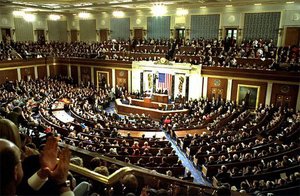 One important item to add to the hot dates in space law for the first quarter of 2007 is of course, ProSpace's never-for-lawyers-only March Storm, taking place March 4 - 7, 2007 on Capitol Hill. (Via Clark Lindsey's HobbySpace.)
One important item to add to the hot dates in space law for the first quarter of 2007 is of course, ProSpace's never-for-lawyers-only March Storm, taking place March 4 - 7, 2007 on Capitol Hill. (Via Clark Lindsey's HobbySpace.)A much needed get together for the spanking new 110th Congress and citizen space advocates.
Items on the 2007 storm preliminary agenda:
1. Near Earth Objects (Asteroids and Comets)
2. Prizes for Space Achievements
3. ITAR Reform
4. NASA/Commercial Services
And Rand Simberg calls for one additional item: "We need to send a message to incoming chairman Oberstar to keep his hands off our suborbital launch regs."
* * *
UPDATE: Jan. 10 -- Of course, no need to wait until March to hit on the nation's space lawmakers. The National Space Society's Space Budget Blitz 2007, is on for February 11-13, 2007. For this push, as last year, human space exploration activists keep the pressure on "to make clear to Congress why the Vision for Space Exploration is the right path for America." (Helmet tip again, Clark.)
ANOTHER UPDATE: I still say industry should get together and sponsor free suborbital space flights for all 535 members of Congress. Although I don't suppose more than a small handful will take up the offer, what better way to keep 'em excited and thinking seriously about space business?
1.08.2007
Hot dates in space law
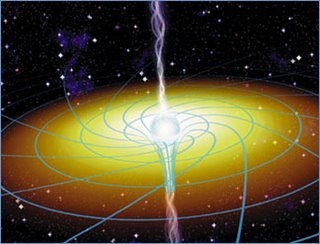 How's your 2007 calendar shaping up so far? Every microsecond counts. Here's some stuff to help satisfy your space law jones over the next few months . . .
How's your 2007 calendar shaping up so far? Every microsecond counts. Here's some stuff to help satisfy your space law jones over the next few months . . . By the way, between space law-related gatherings and deadlines there's always a lot of launch action -- Spaceports blog highlights launches scheduled for 2007, including such noteworthy events as the launch of Bigelow's Genesis-2 Pathfinder inflatable space station, as well as the much-anticipated liftoff of SpaceX's Falcon 1, and Charles Simonyi's ride to ISS.
Much more to come.
* * *
Image: "Artist's concept of the warping of space-time in the vicinity of a rotating black hole." Courtesy of NASA ARC via Joe Bergeron of Sky & Telescope.
1.05.2007
Friday Flybys - 1.5.07
 Ah, first Flybys of 2007. . .
Ah, first Flybys of 2007. . .To Jeff Bezos and the upwardly mobile crew at Blue Origin, gradatim ferociter indeed! With the Goddard test launch (and party) scenes now available for public view (yes, res ipsa locquitor, too ;), Blue should expect a bunch of job applications from some seriously talented engineers. And maybe a few space lawyers, too.
Space Politics has some updates on committee reorganization and assignments and the newly renamed Science and Technology Committee of the 110th Congress.
Don't call a space lawyer: Thankfully, no injuries or damages resulted when pieces of a Russian SL-4 rocket reentered the atmosphere early yesterday morning and rained space junk on Wyoming and Colorado. (But the surprised and delighted on-air crew at Good Day Colorado captured some cool live video, which they believed was a meteor shower).
Speaking of falling objects, don't call a space lawyer, investigators are still unsure about the nature or origin of the mysterious golf-ball sized metallic rock-like thingy that crashed though the roof, bounced off the floor and embedded into the wall of a home in New Jersey. But reports say it was not part of the Russian rocket. Or a plane. (For now, here's how you tell if something is a meteorite. Via Slate.)
Speaking of mysterious objects that may or may not be from space, don't call a space lawyer, an alleged "flying saucer-like object" that may or may not have almost landed at O'Hare Airport in November will not be investigated by the FAA. The agency blames any such sighting on weird weather. Besides, FAA says over at AST it's got its hands full of enough real spacecraft already.
Elon ("We have no serious competition") Musk will fly Virgin Galactic. (Personal Spaceflight)
Reminder: Deadline to submit your comments on the Draft Space Assets Protocol is Feb. 15, 2007.
People for Aerospace wants New Mexicans to get excited about new space jobs (if not new spaceport taxes).
Jeff Foust reports that a major change in UK space policy may be coming.
Ryan Zelnio reviews writings about exports controls at the end of the cold war and the impact of US export policy on space business in Canada.
With the arrival of Baby James, looks like we're in for a new kind of Jonny blogging ;)
Speaking of the next generation, none of The American Lawyer's Young Litigators Fab Fifty of 2007 are space lawyers. Consider this good news. (free Law.com sub. req'd)
And for my niece, Eden, a Sports Illustrated profile of Summer Williams, aerospace engineer working with NASA who happens to moonlight as an NFL cheerleader (for the Houston Texans, who else?) Summer says, "Beauty doesn't last forever," and "I'd much prefer people speak of me as an engineer." (Yes, and if this dual career thing doesn't work out, well, there's always law school.) Go team! (Via NASA Watch)
And for your weekend viewing, some lovely, nostalgic space settlement art, via Transterrestrial Musings (via The Speculist via Accelerating Future via...). Not necessarily for old L-5ers, either ;)
* * *
Image credit: Blue Origin - family and friends cheering on the Goddard launch. (And waiting for the boss to pass around that huge bottle of champagne he broke the cork in.) (Who doesn't want to work there?)
1.04.2007
Space Law in the Era of Globalization
 Well here is a stellar space law event to start off the year.
Well here is a stellar space law event to start off the year.Top space lawyers from around the world, including Nigeria, Poland, Thailand, Italy, India, the Czech Republic, Canada, Brazil, the Netherlands, Hong Kong, and the US, too, will gather for a big one-day space law roundup in good ol' Oxford, Mississippi where the uniquely illustrious National Center for Remote Sensing, Air and Space Law at the University of Mississippi School of Law, will host a super-duper day of discussion and hopefully, some meeting of the minds, on issues of Space Law in The Era of Globalization, Thursday, January 18, 2007.
Topics slated for discussion include: efficacy of the current treaty regime; U.S. national space policy; newly emerging space faring nations; legal aspects of the space exploration initiative; space tourism; peaceful uses of outer space; and Earth observation data access policies.
And check out this list of participants (which I am happy to reprint here):
Dr. Tare Brisibe - Nigeria
National Space Research and Development Agency, Nigeria
Ms. Anna Burzykowska - Poland
Polish Space Office & Centre for Science and Security, King's College London
Dr. Nipant Chitasombat - Thailand
Associate Professor, Mahidol University International College
Dr. Carl Q. Christol - USA
Author of International Studies in Space Law
Dr. Stephen Doyle - USA
Honorary Director, International Institute of Space Law; Consultant
Mr. Marco Ferranzani - Italy
Head of Office for Programme Matters, Legal Dept., European Space Agency
Mr. Edward A. Frankle - USA
Frankle, Sargeant & Friedman, PC; former NASA General Counsel
Dr. Henry Herzfeld - USA
George Washington University Space Policy Institute
Prof. Vladimir Kopal - Czech Republic
University of Pilsen, Faculty of Law
Prof. Ram Jakhu - Canada
Associate Professor, Institute of Air and Space Law, Faculty of Law, McGill University
Prof. Sergio Marchisio - Italy
University of La Sapienza, Rome, United Nations Committee on the Peaceful Uses of Outer Space
Ms. Pamela L. Meredith - USA
Co-chair, Space Law Practice Group, Zuckert Scoutt & Rasenberger, LLP
Dr. Jose Monserrat Filho - Brazil
Vice-President, Brazilian Association of Air and Space Law
Mr. Paul G. Pastorek - USA
Former General Counsel for NASA
Dr. Balakista Reddy - India
Associate Professor of International Law. NALSAR University of Law, Hyderabad, India
Dr. George Robinson - USA
Robinson and Robinson, LLC
Ms. Esta M. Rosenberg - USA
Chief, US Air Carrier Licensing Division, Office of International Aviation; Formerly Sr. Attorney, Commercial Space Transportation, FAA
Ms. Patricia Sterns - USA
Attorney at Law, Sterns and Tennen; Director, International Institute of Space Law
Mr. Leslie Tennen - USA
Attorney at Law, Sterns and Tennen; Former Commissioner, Arizona Space Commission
Dr. Frans von Der Dunk - The Netherlands
University of Leiden, Interational Institute of Air and Space Law
Ms. Rachel A. Yates - USA
Holland & Hart LLP
Dr. Yun Zhao - Hong Kong (special administrational region of China)
City University Hong Kong
Yes, Professor Joanne Gabrynowicz will be the moderator.
And by the way, for a primer on all this, read Joanne's article, Space Law: Its Origins and Challenges in the Era of Globalization, (37 Suffolk U.L. Rev. 1041 (2004)), which Ryan Zelnio recently summarized on his Poli-Space Peer Review blog.
* * *
NOTE: That's right, it's not a typo, the new name *is* National Center for Remote Sensing, Air and Space Law. (My italics.) Something for everyone down in Oxford. But here on SLP we can ignore the "air" part. Joanne won't be offended.
IMAGE CREDIT: Actually, not sure where that image is from. But I like it.
UPDATE: Yes, there will be a webcast. I'll post more on that later. Bring your own coffee and luncheon goodies. Unless you don't mind sharing my carbs. (Donuts, croissants, NY bagels. Globalization can be tasty.)






